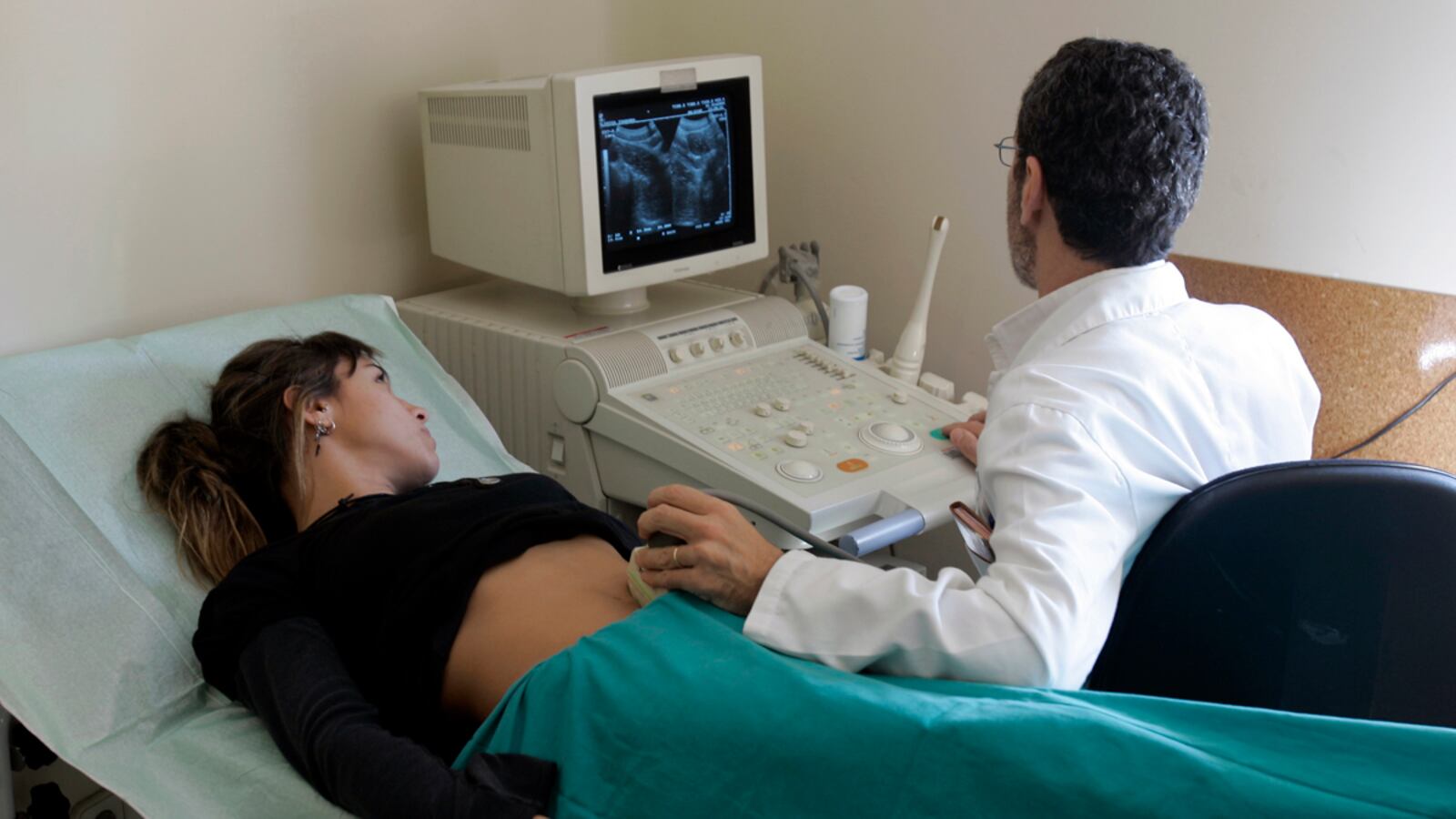When anti-abortion activists defend mandatory ultrasound rules, they often speak about a pregnant woman’s right to know. “Women have a right to know all the available medical and legal information surrounding the abortion decision before giving legally effective informed consent,” said Virginia Gov. Bob McDonnell when he signed such a rule into law last week.

In some states, though, anti-abortion activists are pushing legislation to protect doctors who don’t give women all available information about their pregnancies. Arizona and Kansas are considering bills that would ban lawsuits in cases where doctors fail to warn their patients about birth defects. The Arizona law, which is similar to legislation that exists in a handful of other states, would apply only when doctors make a mistake. But the Kansas provision, part of a sweeping, 69-page anti-abortion bill, would allow physicians to lie to women who might otherwise terminate their pregnancies. It is similar to a law in Oklahoma passed two years ago—in concert, ironically, with mandatory ultrasound legislation.
We’ll likely see more such laws in the future, spurred in part by widespread conservative outrage over a recent so-called wrongful-birth case in Oregon. Indeed, to understand the reasoning behind the push to disavow a woman’s right to know about her pregnancy in certain circumstances, you have to understand the tricky, ethically ambiguous legal concept of wrongful birth. A type of legal claim, it allows parents to sue when they aren’t given information about a pregnancy that would have caused them to abort. In the Oregon case, Ariel and Deborah Levy sued after a botched chorionic villus sampling test failed to reveal that their daughter had Down syndrome, something they learned only after she was born. On Friday, a jury awarded them $2.9 million.
Such cases are rare, but not terribly so. Bruce Nagel, a New Jersey lawyer who pioneered the field, has brought more than 100 of them. The idea of wrongful birth can make even passionately pro-choice people uncomfortable—one can only imagine, after all, what it must be like to be the child in such a case. It’s easy to reconcile humanistic ideals with abortion rights, as forced pregnancy is a clear violation of a woman’s personal autonomy. But the argument that a living person’s existence can be wrongful is quite different. There’s a reason the Levys’ case received a lot more attention on the right than on the left—it seems to embody the dehumanizing, utilitarian approach to life that the anti-abortion movement laments.
“We may have a right to have a baby, but we don’t—or at least shouldn’t—have a right to the baby we want,” writes Wesley J. Smith in The Daily Caller. “Most importantly, none of us should ever be declared by a jury to be a wrongful life.” Even if you disagree with everything else Smith writes, it is hard to disagree with this.
Yet banning wrongful-birth lawsuits can leave women without recourse if they receive substandard care. Right now, there’s no way for parents to seek damages for negligence in prenatal testing without arguing that, had they received accurate results, they would have sought an abortion. The way to fix this is to change the law to make negligent doctors accountable without forcing their misled patients to publicly regret the lives of their children. It is not to say that women receiving prenatal care have no right to know everything that can be known about their pregnancies.
“Common sense will tell you that if you do not have to provide proper prenatal care and if you’re completely insulated from a lawsuit, then some women are not going to get the appropriate medical care that they deserve,” says Nagel. “I think in the worst-case scenario it permits a doctor to lie to his patient. In a day-to-day setting, it just allows negligence.”
Cases in which doctors deliberately deceive their patients to stop them from getting abortions aren’t common, but they do happen. Abbott Brown, a lawyer who has been trying wrongful-birth cases for 34 years, says he had one case in which an anti-abortion family doctor overseeing a woman’s pregnancy never performed an ultrasound; the child was born without arms. Speaking to The Washington Post in 2009 after the murder of George Tiller, a doctor who performed late-term abortions, his colleague LeRoy Carhart described a case in which a woman learned, very late in her pregnancy, that her fetus had no brain. “Her doctor knew the problem all along but just never told her,” he said.
Kansas’s bill would mean that such a doctor would have the right to keep such crucial, devastating information to himself. “It’s explicitly about preventing women from getting the information that they need to make their own personal and private decisions,” says Jennifer Dalven, director of the American Civil Liberties Union’s Reproductive Freedom Project. “Does this incentivize people to act in a particular way? For the vast majority of physicians, the answer is going to be no. The question is, what about those few cases where it does?”






